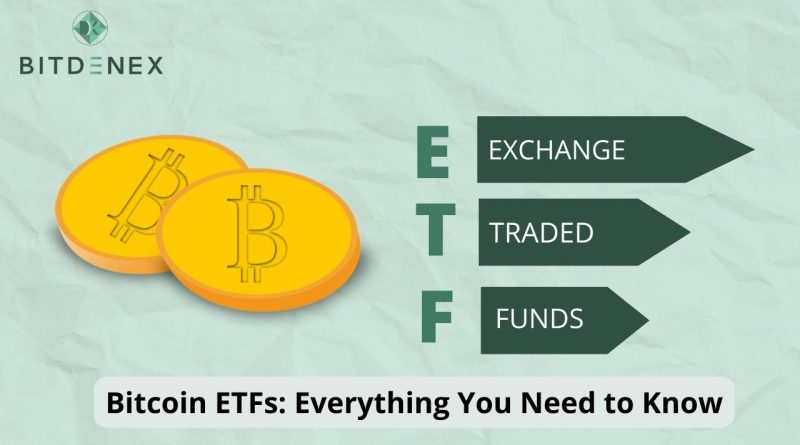Bitcoin ETFs: Everything You Need to Know
Bitcoin exchange-traded funds offer investors the opportunity to gain exposure to the biggest cryptocurrency by market cap without actually owning any.
Bitcoin exchange-traded funds (ETFs) track the value of bitcoin. A traditional stock market exchange can be used to buy, sell, and trade ETFs instead of cryptocurrency exchanges. This is a great way for mainstream investors and speculators to gain exposure to bitcoin prices via a reliable vehicle with which they are likely already familiar.
Exchanging-traded funds, or ETFs, are not a new invention and are common in the financial market. A variety of ETFs can be found to gain exposure to different assets and industries, such as commodities and currencies, and can be set up to invest in environmentally friendly companies or to invest in companies that promote diversity.
Currently, the United States has yet to support a spot Bitcoin ETF, though investors can invest in Bitcoin futures ETFs. The difference between the two is that a spot Bitcoin ETF is backed by actual Bitcoin (BTC), while Bitcoin futures ETFs are backed by Bitcoin derivatives.
What are the benefits and drawbacks of bitcoin ETFs?
A bitcoin ETF would offer a number of advantages over a cryptocurrency exchange or a bitcoin ATM, including:
- Convenience: ETFs do not require users to learn how to use a crypto wallet or open accounts on crypto exchanges.
- The user does not directly own BTC, instead of gaining price exposure through their familiar investment vehicles and tax laws.
- Portfolio diversification: An ETF can hold more than one investment. A Bitcoin ETF could hold actual BTC, Bitcoin-related stocks, and other investments as part of the fund. Even if it only holds BTC, investors earn an option to diversify their portfolios held in traditional markets.
The benefits of a Bitcoin ETF are significant, but they are limited. A few things may always be considered to be disadvantages:
- Fees: ETFs often charge management fees, meaning that part of the money in the fund is going to pay the fund manager rather than to invest.
- No actual bitcoin ownership: Bitcoin ETFs cannot be exchanged for other cryptocurrencies, since holders do not actually own the asset, but gain exposure to its price
- Inaccurate pricing: Bitcoin price increases/decreases may not be reflected in the ETF value in real-time, particularly if there is more than one holding.
Accessing bitcoin ETFs
In other regions, Bitcoin ETFs exist even though they have not yet been approved in the United States. Since the cryptocurrency industry has become so popular, various providers have been able to offer a bitcoin exchange-traded fund in other countries.
Notable examples include:
- Canada: 3IQ Coinshares, CI Galaxy Bitcoin, and Purpose Bitcoin
- Europe: 21Shares Physical Bitcoin ETP, BTCetc – ETC Group Physical Bitcoin ETP, VanEck Bitcoin ETN, Iconic Funds Physical Bitcoin ETP, and Bitpanda Bitcoin ETP
- Brazil: QR Capital’s Bitcoin ETF
- Jersey: WisdomTree Bitcoin
Bitcoin ETFs are not available in the U.S., but there are bitcoin futures ETFs and ways to invest in ETFs that focus on bitcoin-related companies.

